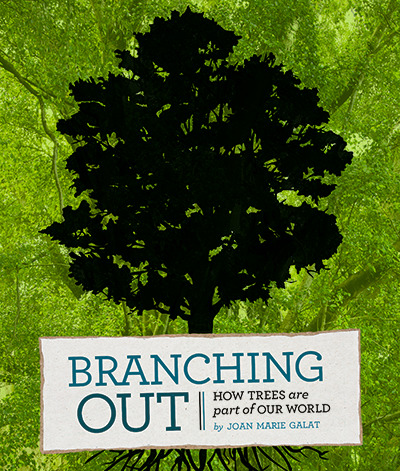 Branching Out
Branching Out
How Trees Are Part of Our World
by Joan Galat
Owlkids Books, 2014
ISBN 978-1-77147-082-7
$13.95, 63 pp., ages 10+
owlkidsbooks.com
The Earth is certainly a marvellous place, full of diversity among its environments and inhabitants. Branching Out describes this diversity through an exploration of types of trees from around the world. With descriptive photographs to accompany the text, each chapter presents comprehensive information containing environmental facts, habitat for local species, and the economic uses for the trees’ many components. Imagine enjoying an orchestra concert where the musicians play their violins and cellos with bows made from the Pau Brasil tree, each costing many thousands of dollars. Bold print directs readers to subchapters allowing them to focus on a particular area of interest, whether it be how the tree serves human or animal needs.
The graphic design of this book has been very carefully planned to allow the reader to have a visual understanding of the content. Each chapter begins with a full colour photograph of the tree in its natural habitat with a map insert to identify its geographic location. Smaller pictures are given a variety of square and circular framing to add diversity to the layout. Light green textual inserts immediately direct the reader to fun and important facts. Branching Out is more than an encyclopedia of tree variety—the last ten pages encourage environmental stewardship through conservation, planting and recycling. On the final page is a list of global agencies that promote the replanting of trees worldwide.
Curriculum Connections: This book can be used in a variety of research projects to accompany the science curriculum while exploring topics such as habitat, global warming, diversity, or the effects of human impact on the environment and actions which can reverse deforestation. Branching Out might inspire the next generation of conservationists as they begin to construct home and schoolyard habitats.
Review by Kent Miller.
This review is from Canadian Teacher Magazine’s Apr/May 2016 issue.









